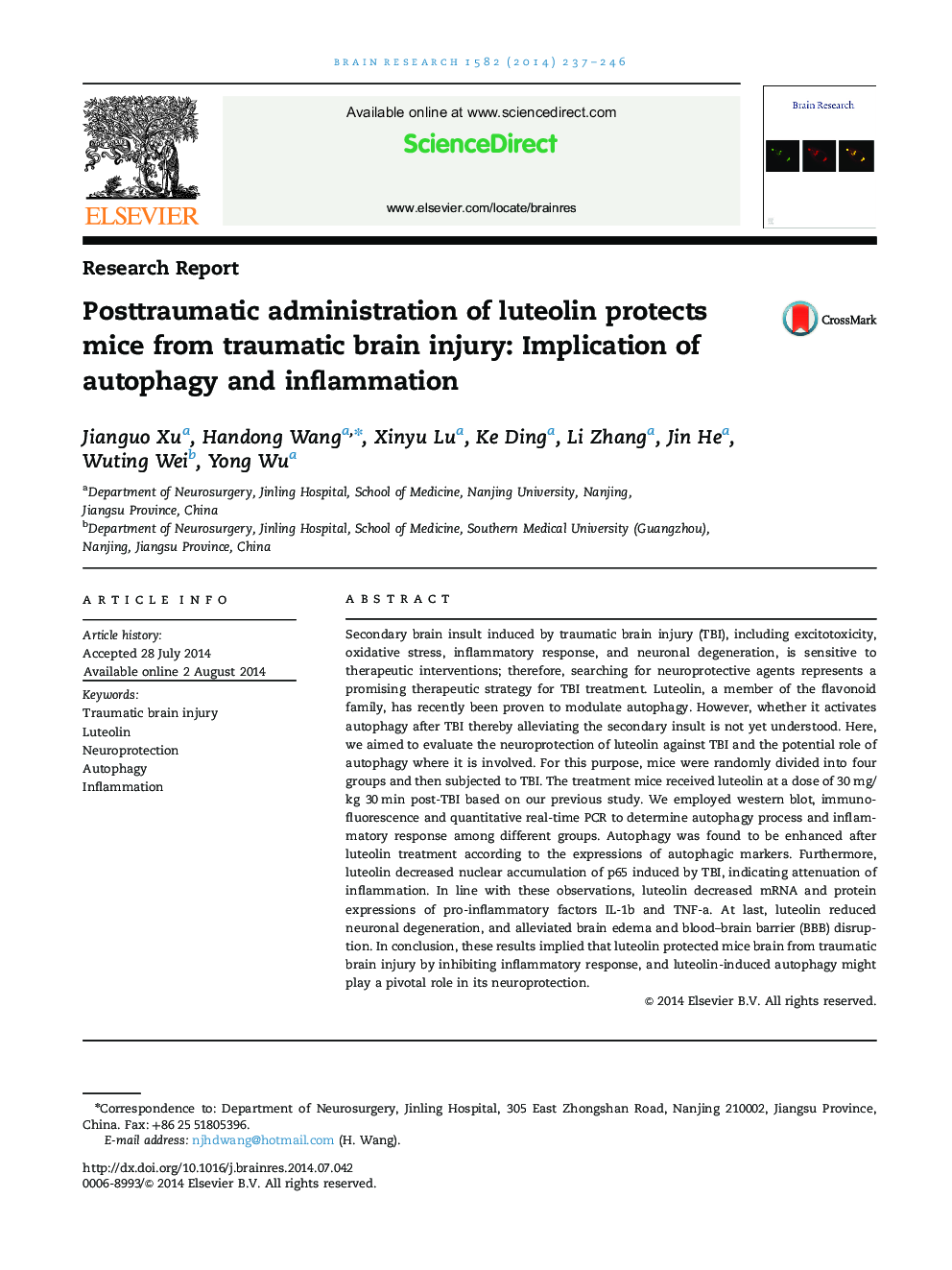| Article ID | Journal | Published Year | Pages | File Type |
|---|---|---|---|---|
| 4324112 | Brain Research | 2014 | 10 Pages |
Abstract
Secondary brain insult induced by traumatic brain injury (TBI), including excitotoxicity, oxidative stress, inflammatory response, and neuronal degeneration, is sensitive to therapeutic interventions; therefore, searching for neuroprotective agents represents a promising therapeutic strategy for TBI treatment. Luteolin, a member of the flavonoid family, has recently been proven to modulate autophagy. However, whether it activates autophagy after TBI thereby alleviating the secondary insult is not yet understood. Here, we aimed to evaluate the neuroprotection of luteolin against TBI and the potential role of autophagy where it is involved. For this purpose, mice were randomly divided into four groups and then subjected to TBI. The treatment mice received luteolin at a dose of 30Â mg/kg 30Â min post-TBI based on our previous study. We employed western blot, immunofluorescence and quantitative real-time PCR to determine autophagy process and inflammatory response among different groups. Autophagy was found to be enhanced after luteolin treatment according to the expressions of autophagic markers. Furthermore, luteolin decreased nuclear accumulation of p65 induced by TBI, indicating attenuation of inflammation. In line with these observations, luteolin decreased mRNA and protein expressions of pro-inflammatory factors IL-1b and TNF-a. At last, luteolin reduced neuronal degeneration, and alleviated brain edema and blood-brain barrier (BBB) disruption. In conclusion, these results implied that luteolin protected mice brain from traumatic brain injury by inhibiting inflammatory response, and luteolin-induced autophagy might play a pivotal role in its neuroprotection.
Related Topics
Life Sciences
Neuroscience
Neuroscience (General)
Authors
Jianguo Xu, Handong Wang, Xinyu Lu, Ke Ding, Li Zhang, Jin He, Wuting Wei, Yong Wu,
